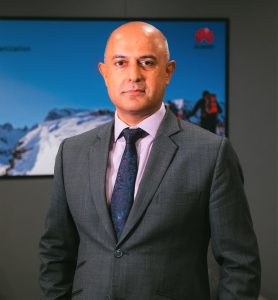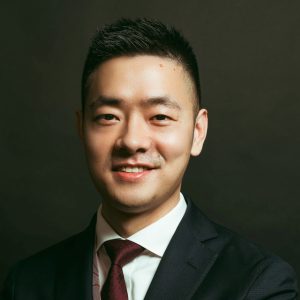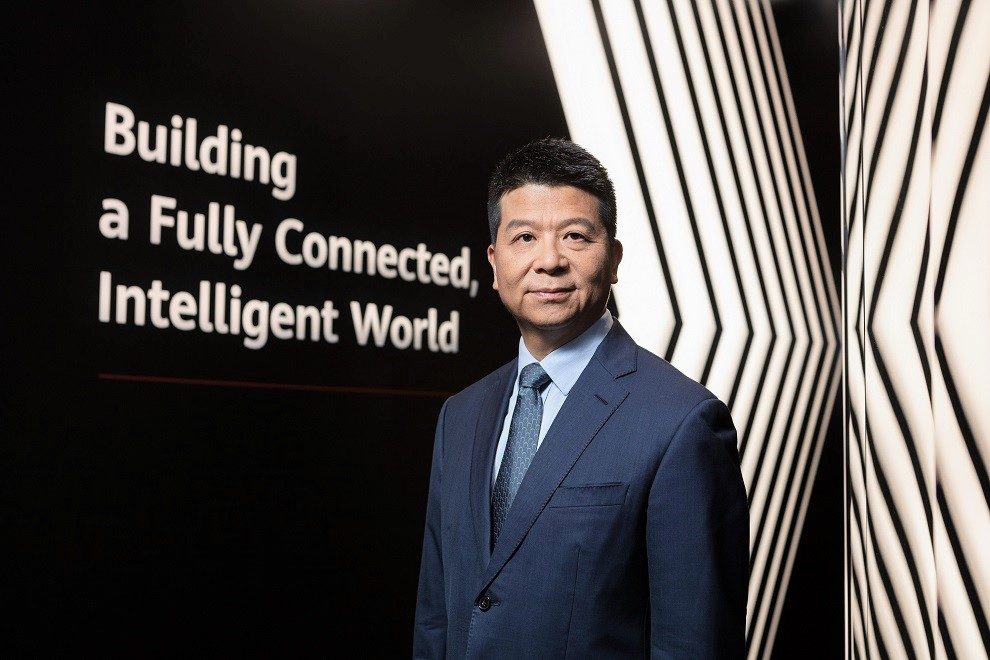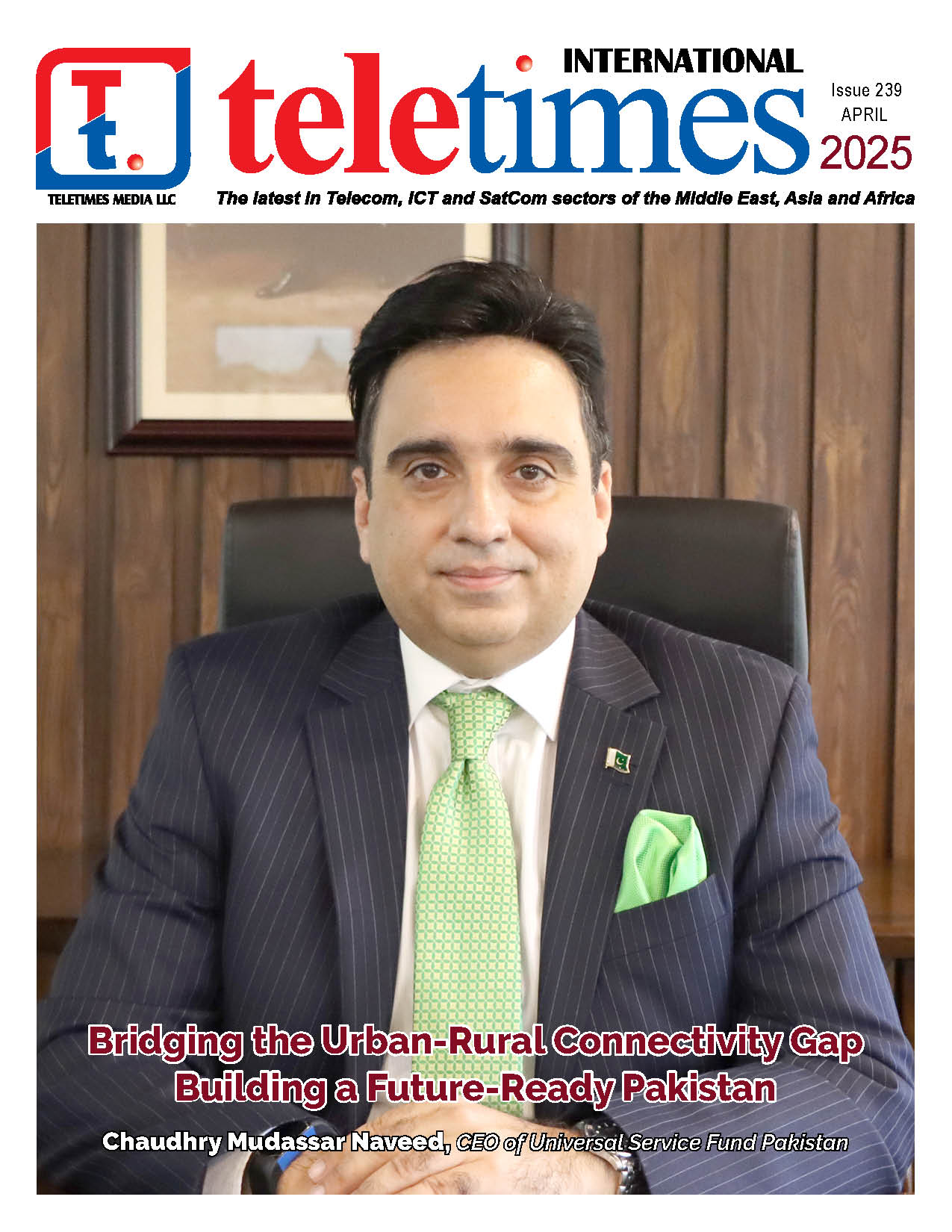Teletimes Report
Teletimes International was present at the inaugural LEAP 2022 technology conference which was held in Riyadh on 1-3 February. The event attracted the participation of some of the world’s biggest technology players – and key industry stakeholders from across the Middle East IT ecosystem for 3 days of intense networking, as Saudi Arabia made a big statement in relation to its aspirations to diversify its economy by becoming a hub of technological advancement and innovation.
COMMITMENT TO THE CLOUD
Huawei has firmly established itself as the world’s leading ICT vendor, and its presence across the Middle East continues to expand. However, during LEAP it was clear just how committed the Chinese company is in terms of helping the KSA achieve the goals of its digitalization objectives which are laid out in the Saudi Vision 2030 blueprint.
Guo Ping
On Day 1 of LEAP 2022, Guo Ping, Rotating Chairman at Huawei outlined their cloud strategy in the Kingdom, which he believes will only serve to foster an environment that is designed to allow innovation to progress and will accelerate digital transformation across Saudi Arabia.
During his detailed keynote presentation at LEAP, Ping revealed that Huawei would build a cloud region in Saudi Arabia, and he expressed his confidence that the project would be live by the end of 2022. He said the establishment of Huawei Cloud would enable businesses and government entities to have access to more robust and secure cloud services, that will generate huge value for the local economy.
In addition to this, he outlined how Saudi Arabia’s confirmation that they plan to become one of the world’s top 20 tech companies in a bid to reduce their dependency on oil gave them great optimism for the future.
“The new cloud region will create new social and economic value in Saudi Arabia and the wider Middle East in line with their digital development strategies. Going digital is now a key global consensus. Over the past three years alone, many global enterprises have fully embraced digitalization, with the top 10% of these organizations growing their revenue as much as five times faster than those who have not embraced digitalization. Huawei’s own customers, partners, and developers can rely on our services to help industries in the region go digital,” said Ping.
Huawei has been in the KSA marketplace since 2004, and as Ping highlighted has cultivated and nurtured strong relationships with some of the country’s largest network operators such as STC and Mobily, leveraging their cutting-edge technology and solutions to build world-class networks in the Kingdom, in areas which were previously underserved, and the KSA is also home to one the most tech-savvy and young populations across the GCC.
The dynamic and charismatic rotating chairman of Huawei, also pointed out how Huawei enjoys good relationships with industry titans in Saudi Arabia, such as Saudi Aramco, and presented that as further evidence of the trust major brands has in Huawei, and how their lengthy presence in the market puts them in a great position to drive and lead the country’s ambitious digital transformation program over the next 10 years.
“For the past 17 years, the company has assured stable Saudi telecom networks during major national events such as the Hajj that demands high-quality networks – and Huawei has also worked with industry leaders like Aramco on intelligent oil field operations, and I think these collaborations indicate clearly how important a role Huawei’s diverse portfolio of solutions and technologies have played in key industry verticals across the Kingdom,” said Ping.
He concluded his presentation by highlighting how Huawei was fully committed to helping the KSA achieve its aspirations to be one of the first countries in the world to have a large-scale AI model.
“We have also pledged to cultivate talent for the regional AI industry. In Saudi Arabia, Huawei will support the Kingdom’s effort to become one of the first countries to have a large-scale AI model – and we firmly believe this will help the country build more intelligent platforms in domains like Arabic-language identification, pharmaceutical R&D, disease detection, and many others,” said Ping.
DIGITAL POWER
The role of technology in supporting carbon neutrality was also in the spotlight at LEAP. The Huawei Digital Power business focused on the intersection between digital and power electronics technologies to help create zero-carbon ICT infrastructure in the Middle East, and to support zero-carbon electricity generation in line with recent national sustainability commitments. Huawei showcased the latest green energy-saving products at their impressive stand during LEAP, some of which have shown to save 30% on power consumption compared to traditional products.
 Safder Nazir
Safder Nazir
Teletimes, along with other media colleagues from across the Middle East, were afforded the opportunity to attend a press briefing from Safder Nazir, Senior Vice President of Digital Industries at Huawei Middle East.
Nazir is one of the most respected and coveted digital thought leaders in the IT ecosystem in the Middle East, and he outlined the role Huawei was playing in terms of helping Saudi Arabia become a leader in sustainability.
“Our datacenter facilities are designed to reduce our carbon footprint due to the prefabricated nature of how we do it, and secondly, we are delivering the lowest PUE (Power Utilization Efficiency), and as a result we have the most energy efficient datacenter project in the world. We believe our energy goals are very well aligned with the objectives of the Saudi Vision 2030 program, particularly from a sustainability perspective,” said Nazir.
At Huawei’s immersive stand at LEAP, they documented the meteoric transformation undertaken by Shenzhen over the last 40 years, and Nazir said that Saudi Arabia can take inspiration from that project, citing that the absence of legacy infrastructure can enable them construct megacities.
“Shenzhen is one of the most advanced cities in the world, and is young in nature, and it has gone from being a fishing village to a megacity in less than 40 years has a great similarity with what is happening in this region. These cities don’t have that legacy of infrastructure that exists in Europe and North America, so it is easier in many ways to infuse new technologies and construct new cities that have technology in their DNA, and places like Shenzhen is a great example of what can be achieved, said Nazir.
Nazir also revealed his delight that Huawei is going to play a major role in driving the development of Saudi Arabia’s new sustainable city NEOM.
“We have already deployed an integrated operations center in Yanbu, which is an industrial city, but we are delighted to be working with other worldwide famous projects like NEOM, and our cutting-edge technologies and solutions are going to empower a project like that to execute their goals and objectives,” said Nazir.
 Frank Dai
Frank Dai
On Day 2 of LEAP 2022, Frank Dai, President of Huawei Cloud Middle East gave us a detailed briefing that shed more light on Huawei’s cloud strategy in the KSA, following the announcement made by Huawei’s rotating chairman Guo Ping on Day 1 of the tech conference.
Dai referenced their longevity in the KSA marketplace and noted how Huawei was the biggest partner of telecom players such as STC and Mobily.
“We have been here since 2004, and we are without doubt the biggest partners of the likes of STC and Mobily, and I think it’s fair to say that over the last 20 years, we have been focused on the business of connectivity. However, I think over the next 20 years we will focused on digitalization,” said Dai.
Dai also highlighted that it was now increasingly evident that Saudi Arabia was changing as a society and is becoming much more open, and praised the vision and leadership demonstrated by the leadership in the Kingdom.
“LEAP is a fantastic illustration of just how serious Saudi Arabia is about becoming a major force globally in the tech and IT landscape. They have attracted huge participation from all the key industry stakeholders from across the region, and you know that it has the potential to get bigger and better and is set to become a key date in the calendar for all involved in the ICT business here in the Middle East,” said Dai.
Dai leads Huawei’s cloud business unit across the Middle East, and he said that this area was going to be critically important for the new digital economy in Saudi Arabia.
“We firmly believe at Huawei that the whole world is going to be digital, and the key element of that digitalization will be modern infrastructure. Huawei Cloud has the modern infrastructure that is ultimately required to support the entire society here as they attempt to embrace digital transformation,” said Dai.
The President of Huawei Cloud Middle East revealed that the Chinese ICT behemoth is also introducing the ‘everything-as-a-service’ model to the KSA market, ranging from infrastructure, to technology, to experience.
He echoed the sentiments expressed by Guo Ping on Day 1 of LEAP – and outlined their cloud plans for Saudi Arabia.
“We are expanding our cloud coverage across the region, and as our rotating chairman Guo Ping announced during his keynote presentation on Day 1, we will launch a cloud region here in Saudi Arabia. We want to determine what the best architecture for cloud looks like. We really believe in our QingTian architecture that is designed to support customers to run and manage their workloads whenever it suits them the best, and we are very excited at what we can achieve here in the Kingdom,” said Dai.








